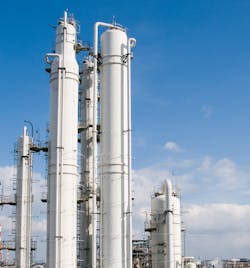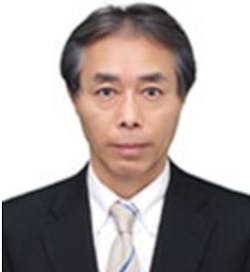Artificial Intelligence Autonomously Controls JSR Chemical Plant
In a field test to determine the viability of artificial intelligence (AI) to control a chemical plant, automation technology supplier Yokogawa Electric Corporation and chemical manufacturer JSR Corporation successfully operated a distillation column at the JSR plant autonomously with AI for 35 days. The test ran from January 17 to February 21, 2022, for a total of 840 hours of operation.
Yokogawa and JSR say the test confirmed that reinforcement learning AI can control operations beyond automated PID and Advanced Process Control (APC) applications that typically require the judgement of plant personnel and manual operation of control valves.
The specific AI technology used at the JSR plant—the Factorial Kernel Dynamic Policy Programming (FKDPP) protocol—was developed by Yokogawa and the Nara Institute of Science and Technology in 2018. IEEE recognized this technology as being the first reinforcement learning-based AI suitable for use in plant management. In addition to the FKDPP protocol’s ability to handle tasks beyond PID and APC, Yokogawa says specific strengths of this AI technology include an ability to deal with conflicting targets, such as handling the dual needs of maintaining high quality and achieving energy savings.
Other Yokogawa automation technologies used in the test included:
- OmegaLand plant simulator;
- Centum VP integrated production control system;
- Exaopc OPC interface package (OPC-compliant software that enables management of databases used in the processing industries); and
- GA10 data logging software.
According to Yokogawa and JSR, specific achievements of the AI technology during its 35 days of autonomously operating the plant include:
- Ensuring product quality while eliminating excess fuel, labor, and time costs associated with the production of off-spec products.
- Maintaining liquids in the distillation column at an appropriate level while making maximum possible use of waste heat as a heat source.
- During inclement weather conditions that could disrupt the control state due to temperature changes, products produced during those periods still met the plant’s standards.
The two companies plan to continue exploring the application of the FKDPP protocol to other processes and plants to improve productivity.
“We have heard comments [from operators in the field] that not only has the burden on operators been reduced [with this AI technology], but the very fact that we have taken on the challenge of [using] this new technology and succeeded is motivation for moving forward with digital transformation,” said Masataka Masutani, general manager of production technology at JSR.
About the Author
David Greenfield, editor in chief
Editor in Chief

Leaders relevant to this article:



